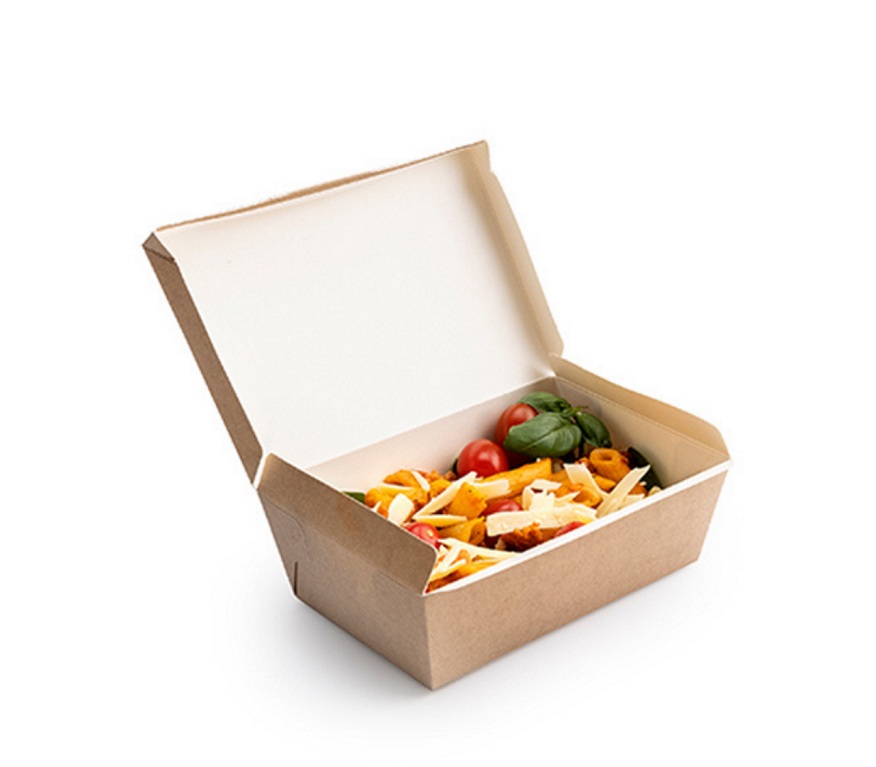Food packaging is one of the most crucial aspects of modern society due to the increasing rate at which food products are packaged. The changing consumer trends for convenience and environmentally friendly solutions have made the focus of most industries to be food packaging containers wholesale. Bulk packaging makes it easy for manufacturers to purchase packaging materials in such large quantities so that they can safely pack and transport foods. Besides, it is designed to provide affordable solutions for organizations that want to save money on packaging without sacrificing quality. Besides being cost-effective, food packaging containers wholesale is available in different styles that meet the type of food and specific storage needs. When it comes to the storage of food or other sensitive products, some containers can suit the needs of a business perfectly.
- Knowledge of sustainable food packaging material: Sustainable or eco-friendly packaging materials have emerged as popular choices in the food packaging sector mainly due to the increasing consciousness of environmental concerns. It is attempting to minimize ecological loss related to conventional packaging resources by employing environment-friendly, reusable, and bio-degradable materials. Environmentally friendly products are made of bio-based products such as plant-derived plastics, recycled papers and natural fibres. The change in the type of material that is used provides a solution to waste and carbon emission problems in society. Implementing materials such as these also puts companies in a much better standing to meet the often high regulations and customers’ expectations for sustainable packaging.
- Various kinds of wholesale food packaging containers: Food packaging container wholesalers exist in different packaging types to suit business demands. These categorizations are rigid, semi-rigid, and flexible packaging. Tight, solid packages like glass containers, tin cans, and plastic vats are usually selected for long-term storage. Cartons and trays fall under this category in that they are rigid but slightly flexible and very much lighter and cheaper than other fully rigid packaging materials. The different forms of flexible packaging material include pouches, bags and films, usually sourced from flexible packaging material companies because of the ability to take on the shape of the product. All these options bring many benefits such as better storability, lesser utilization of the materials and longer life expectancy of the perishable products.
- Responsibilities of flexible packaging material suppliers: The suppliers of flexible packaging materials are also important in the food industry as they offer versatile packaging solutions. This encompasses materials such as plastic films, foil, and paper-based laminates that can be rendered and formed in any required shape of the particular product to be packed. These suppliers provide bags that are light in weight, strong and capable of preserving the freshness of the foods. This paper established that flexible packaging is now a crucial element for supplying all the food since the need for convenient, space-saving packaging has grown in recent years. Particularly in supply chain operations, suppliers collaborate with businesses to develop packaging designs, which enhance product recognition and attractiveness to customers and reduce wastage.
- Advantages of sustainable packaging for businesses: The use of sustainable food packaging materials has numerous benefits. First, they minimize waste production and energy usage, ensuring specific companies operate in sustainable ways and adhere to environmental standards. Sustainable packaging also resonates with consumer trends as there is an increasing demand for environmentally friendly products. Also, the utilization of recyclable and biodegradable packaging contributes positively to the perception that a certain brand is an environmentally conscious company. Also, there are clear benefits when it comes to their impact on the environment and cost reduction because of the application of sustainable packaging material.
- Addressing consumer concerns through sustainable packaging: As such consumers are turning the screws on manufacturers and suppliers to provide conforming packaging. Thus, these problems can be solved with the help of supplies of food packaging that are friendly to the environment, and companies can attract buyers who are concerned about this issue. Non-recyclable packing affects the environment while using biodegradable or recyclable packing is a sign that gives a sense of responsibility as well as care to the consumers. To meet these demands, producers are now collaborating with versatile packaging material suppliers to create eco-friendly packaging products but retain their functionality and attractive appeal.
- Trends in wholesale food packaging containers: The global food packaging market continues to experience dynamic changes with the following emerging trends. Such trends include the shift towards lightweight and flexible packaging styles since they have both environmental and economic prospects. This had a positive impact on flexible packaging material suppliers since many customers are now turning to foldable packaging solutions such as pouches and films that can significantly lessen packaging waste while offering appropriate barrier layers for food products. One is the general utilization of raw materials derived from compostable plastics, plant-based plastics instead of ordinary plastic containers. Companies are also turning to smart packaging solutions, which would use QR codes or sensors to relay information about the condition of the food or another product.
- Challenges and future of sustainable packaging: However, the use of sustainable food packaging materials is on the rise, and it also poses some problems to the business. The initial factor is the cost of purchasing and incorporating eco-friendly packaging is slightly expensive in comparison to conventional packaging, thus limiting the conversions of some companies to green packaging. Further, some sustainable materials may not be easily accessible due to the development of recycling or composting networks in certain parts of the world. However, such difficulties are believed to decrease gradually in future as the technological advancement increases, and the customer’s call for environment-friendly products rises. In the future, new developments in environmentally friendly packing might even bring more efficient packing solutions which are efficient in cost. This knowledge will help those firms that are in a position to make sure that they shall be able to cope with the increasing world which is caring more about the environment.
Thus, the need for environmentally friendly packaging strategies cannot be overemphasized, and the food packaging sector is expanding to incorporate this. Wholesale food packaging containers allow businesses to acquire quality containers at increasingly competitive prices, while eco-friendly food packaging materials are readily available to help reduce pollution. Suppliers of flexible packaging materials are well-positioned in this shift, as they deliver convenient and sustainably sourced packaging solutions. With consumers becoming more conscious of packaging choices, companies that embrace sustainable strategies gain significant advantages in terms of cost efficiency and market uniqueness. The flexible packaging material suppliers also hold a significant position while solving functional needs, social demands, and artistic concerns, which are the significant focal points in the evolution of food packaging.





